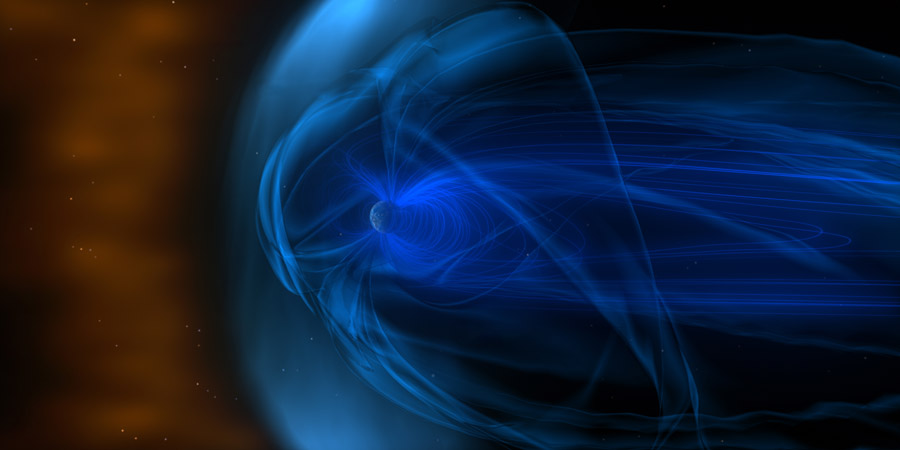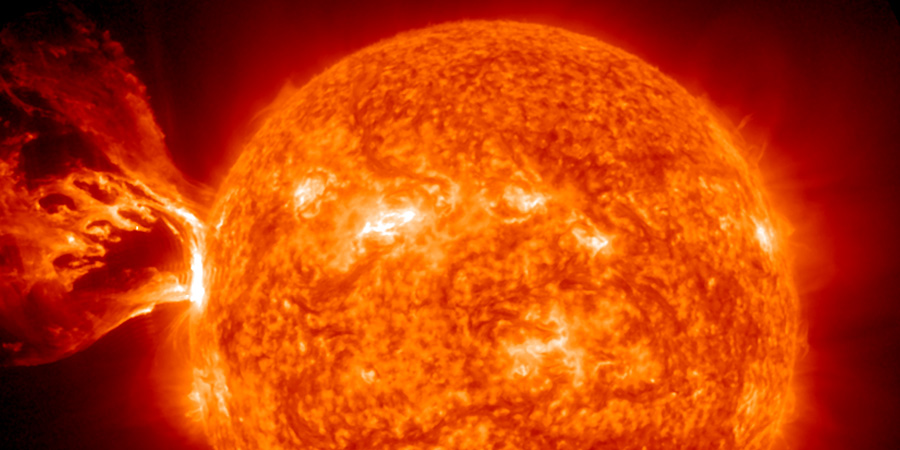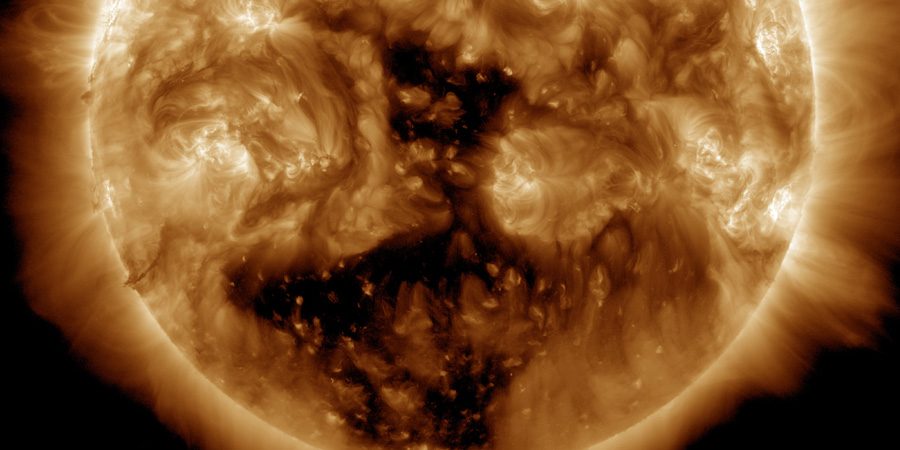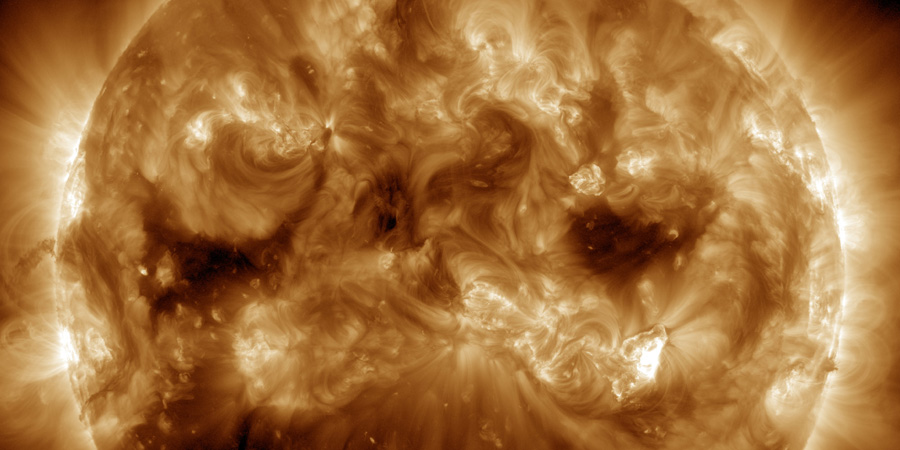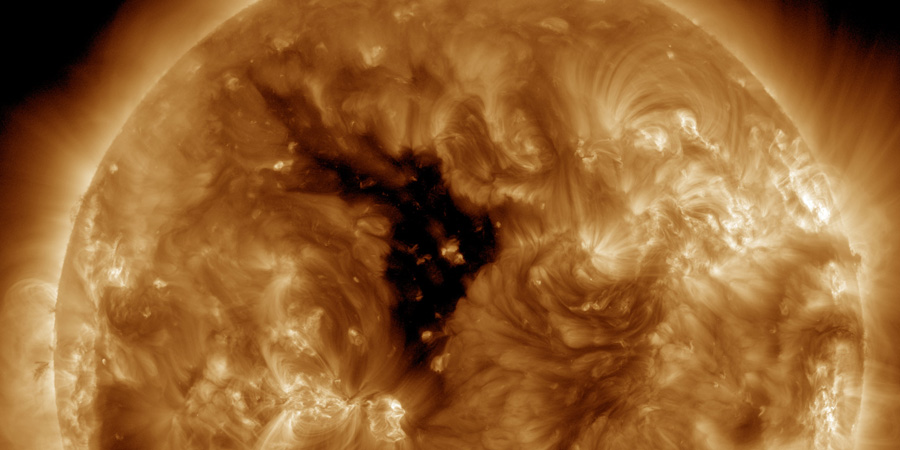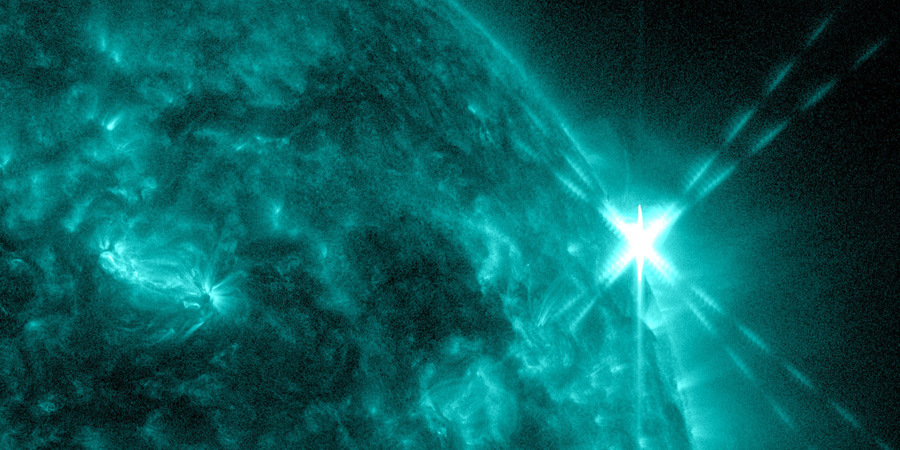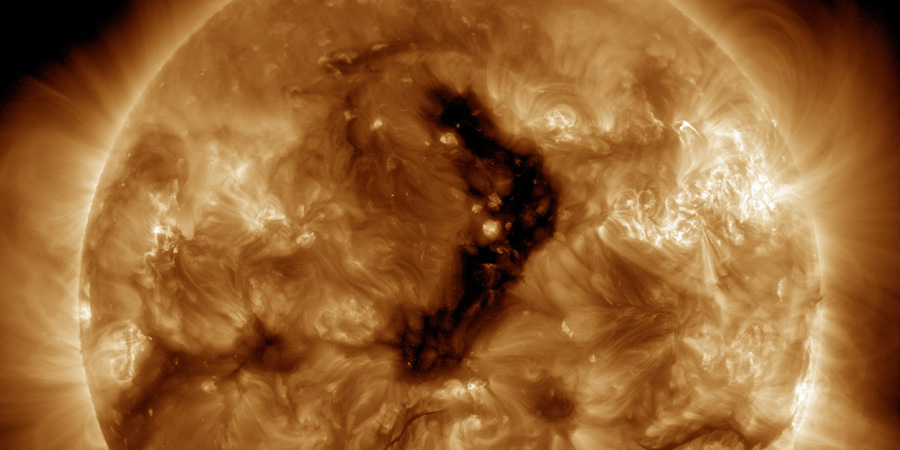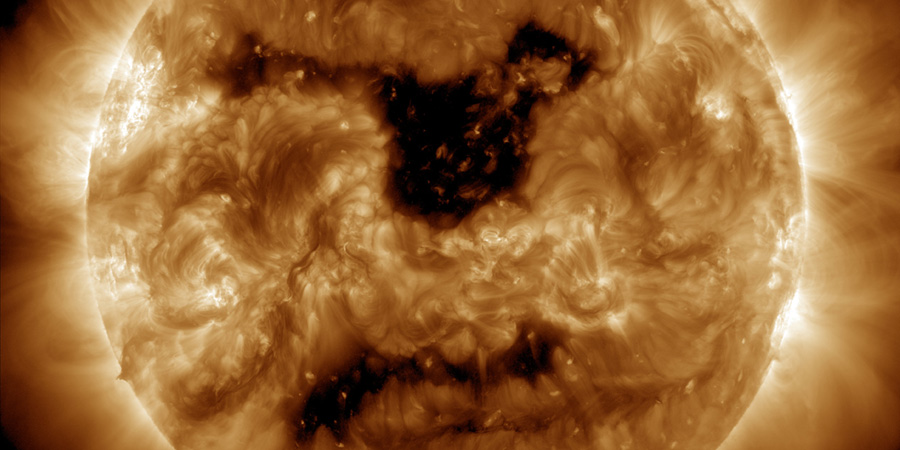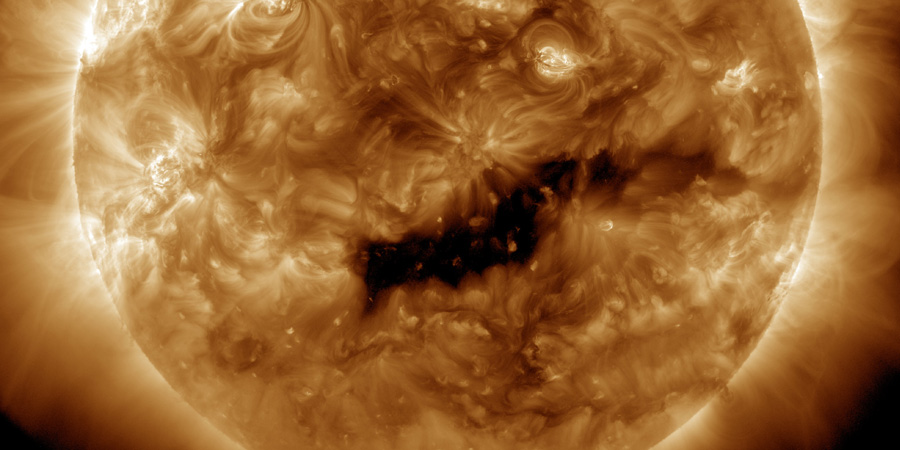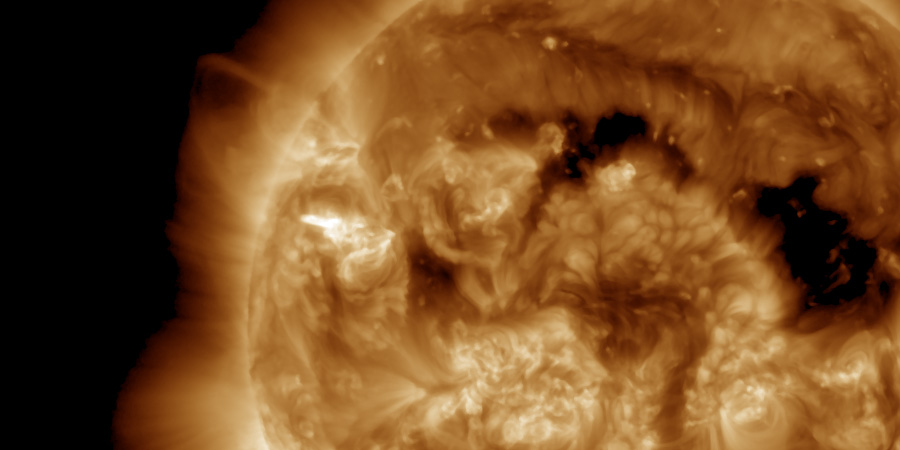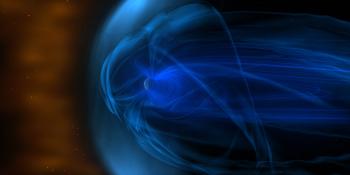Latest news updates Subscribe
CME arrival, G3 storm watch
Tuesday, 15 April 2025 17:55 UTC
A coronal mass ejection has arrived at our planet. This is the first of possibly two coronal mass ejections that were expected to arrive from filament eruptions on April 12 and 13. The minor G1 geomagnetic storm threshold has already been reached and the NOAA SWPC has a strong G3 geomagnetic storm watch in place for tomorrow, 16 April. Keep an eye on the data here on this website in the hours ahead. There is more action to come!
X1.1 solar flare
Friday, 28 March 2025 18:06 UTC
We have only just started to relax following the moderate G2 geomagnetic storm conditions from a massive coronal hole and suddenly... bam... our Sun surprises us all with a X1.1 solar flare (R3-strong) that came from sunspot region 4046 which is just rotating into view on the east limb.
Coronal hole faces Earth
Monday, 24 March 2025 16:59 UTC
The anticipated strong G3 geomagnetic storm watch never materialized as the coronal mass ejection that was supposed to arrive early yesterday didn't arrive until today just past midnight UTC. The impact was very lackluster with the Bt (total strength of the IMF) increasing to a moderate 15nT at best and the solar wind speed reaching just 420km/s. A far cry from the anticipated 700 to 800km/s. That once again goes to show how hard it is to forecast space weather events and any resulting geomagnetic conditions. We remain under the influence of the CME and high latitude sky watchers should remain alert for some nice aurora displays but middle latitude sky watchers will probably have to wait for the next opportunity.
Strong G3 geomagnetic storm watch for 23 March
Saturday, 22 March 2025 17:58 UTC
Yesterday around 16 UTC an M1.2 solar flare took place around sunspot region 4028. The solar flare triggered a filament eruption which erupted from the center of the earth-facing solar disk.
Coronal hole faces Earth
Wednesday, 5 March 2025 21:47 UTC
A coronal hole is facing our planet today which is sending a high speed solar wind stream towards us which could cause enhanced geomagnetic conditions (and thus aurora!) in the days ahead.
X2.0 solar flare from sunspot region 4001
Sunday, 23 February 2025 19:55 UTC
It has been 53 long days but we have finaly seen another X-class solar flare coming from the Sun today. Sunspot region 3947 produced an X1.8 solar flare on 4th of January and since that day... silence... but today departing sunspot region 4001 produced an X2.0 solar flare.
Coronal hole faces Earth, Minor G1 geomagnetic storm watch
Friday, 7 February 2025 19:26 UTC
Geomagnetic conditions have been relativity quiet lately with no strong geomagnetic storms to speak of. Coronal holes are however making a return and we are seeing them more regularly appearing and influencing the weather in space around Earth and thus the aurora dancing above our heads.
Double coronal holes face Earth
Wednesday, 29 January 2025 15:19 UTC
A coronal hole is facing our planet today which is sending a high speed solar wind stream towards us which could cause enhanced geomagnetic conditions (and thus aurora!) in the days ahead.
Coronal hole faces Earth
Thursday, 16 January 2025 17:53 UTC
A coronal hole is facing our planet today which is sending a high speed solar wind stream towards us which could cause enhanced geomagnetic conditions (and thus aurora!) in the days ahead.
Sunspot region 3947, X-class solar flares
Saturday, 4 January 2025 17:46 UTC
Solar activity has been on the rise again thanks to flaring activity coming from sunspot region 3947. It has been responsible for multiple M-class events and three low-level X-class events including an X1.8 solar flare today that peaked at 12:48 UTC.
Latest news
Latest forum messages
Support SpaceWeatherLive.com!
A lot of people come to SpaceWeatherLive to follow the Sun's activity or if there is aurora to be seen, but with more traffic comes higher server costs. Consider a donation if you enjoy SpaceWeatherLive so we can keep the website online!

Space weather facts
| Last X-flare | 2025/03/28 | X1.1 |
| Last M-flare | 2025/04/15 | M1.2 |
| Last geomagnetic storm | 2025/04/16 | Kp8- (G4) |
| Spotless days | |
|---|---|
| Last spotless day | 2022/06/08 |
| Monthly mean Sunspot Number | |
|---|---|
| March 2025 | 134.2 -20.4 |
| April 2025 | 120.7 -13.5 |
| Last 30 days | 120.8 -19.6 |
